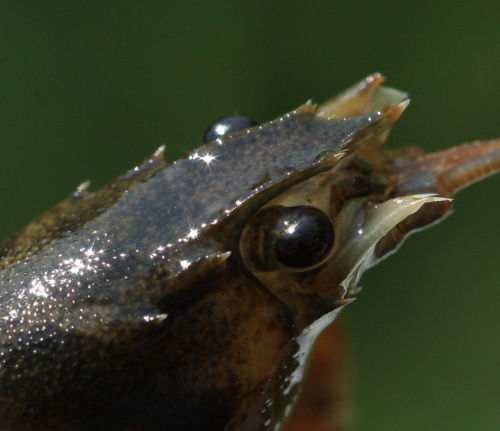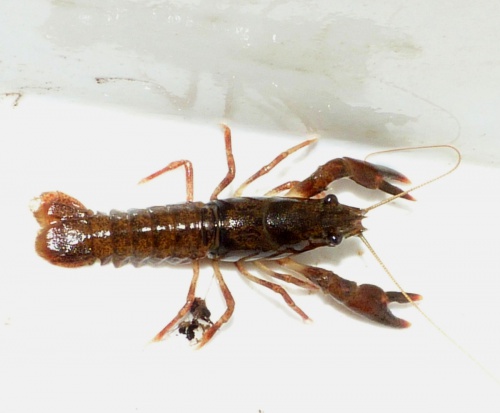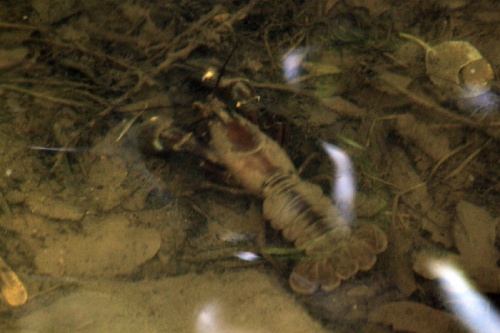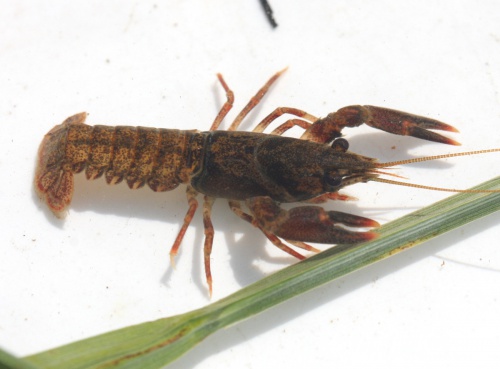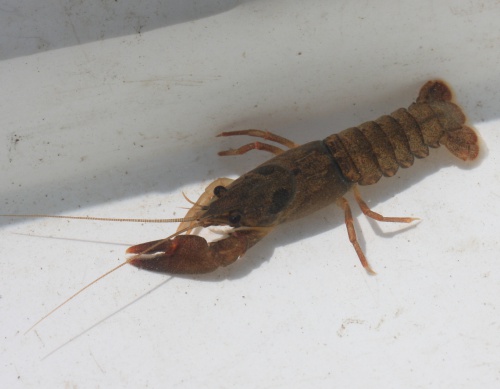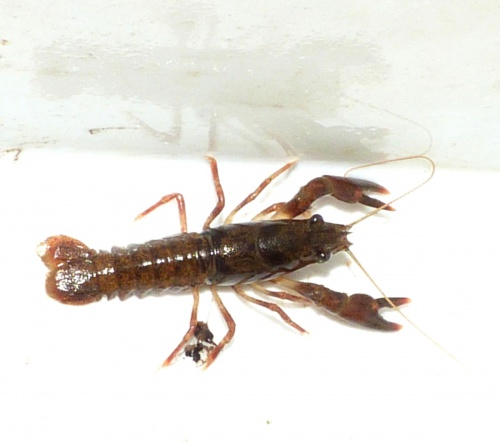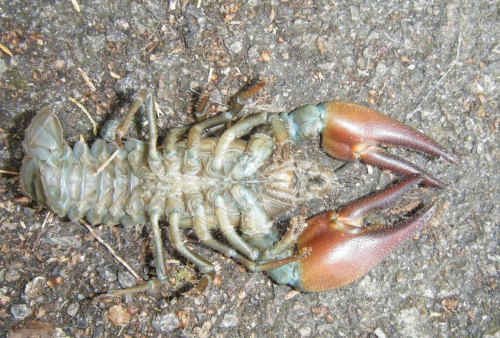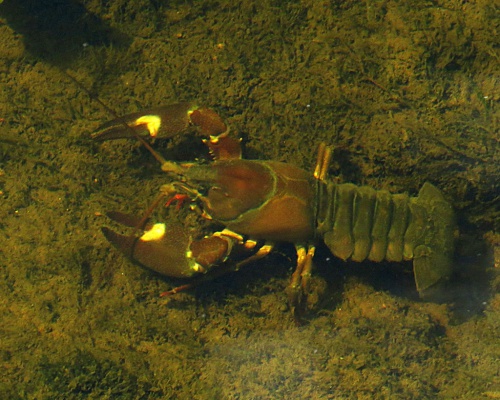Signal Crayfish - Pacifastacus leniusculus
Introduced from the USA, these crayfish are up to 15 cm, encased in a tough shell and armed with two large smooth claws. They are bluish-brown to reddish-brown in colour. They have a white to pale blue-green patch near the claw hinge. The claws are orange/red on the underside.
For a comparison of Crayfish species follow this link: http://www.boxvalley.co.uk/nature/fiss/General/crayfish.asp
Rivers, lakes and ponds.
All year round.
A voracious predator it will eat almost anything it finds including plants, invertebrates, snails, small fish and fish eggs. It is also a cannibal that makes a meal of its own young. The Signal Crayfish digs burrows up to three feet long in river banks where each year it lays more than 250 eggs at a time. The spread of this species is threatening the future of our native White-clawed Crayfish.
This invasive crayfish has now reached plague proportions in many parts of Britain and marine biologists have been desperately seeking a way of halting its relentless spread. It is also well established in Leicestershire and Rutland.
Common in Leicestershire and Rutland.
Leicestershire & Rutland Map
Enter a town or village to see local records
MAP KEY:
Yellow squares = NBN records (all known data)
Coloured circles = NatureSpot records: 2025+ | 2020-2024 | pre-2020
UK Map
Species profile
- Common names
- Signal Crayfish, American Signal Crayfish
- Species group:
- Woodlice, Crustaceans
- Kingdom:
- Animalia
- Order:
- Decapoda
- Family:
- Astacidae
- Records on NatureSpot:
- 68
- First record:
- 13/07/2006 (Calow, Graham)
- Last record:
- 20/06/2025 (West, Don)
Total records by month
% of records within its species group
10km squares with records
The latest images and records displayed below include those awaiting verification checks so we cannot guarantee that every identification is correct. Once accepted, the record displays a green tick.
In the Latest Records section, click on the header to sort A-Z, and again to sort Z-A. Use the header boxes to filter the list.





